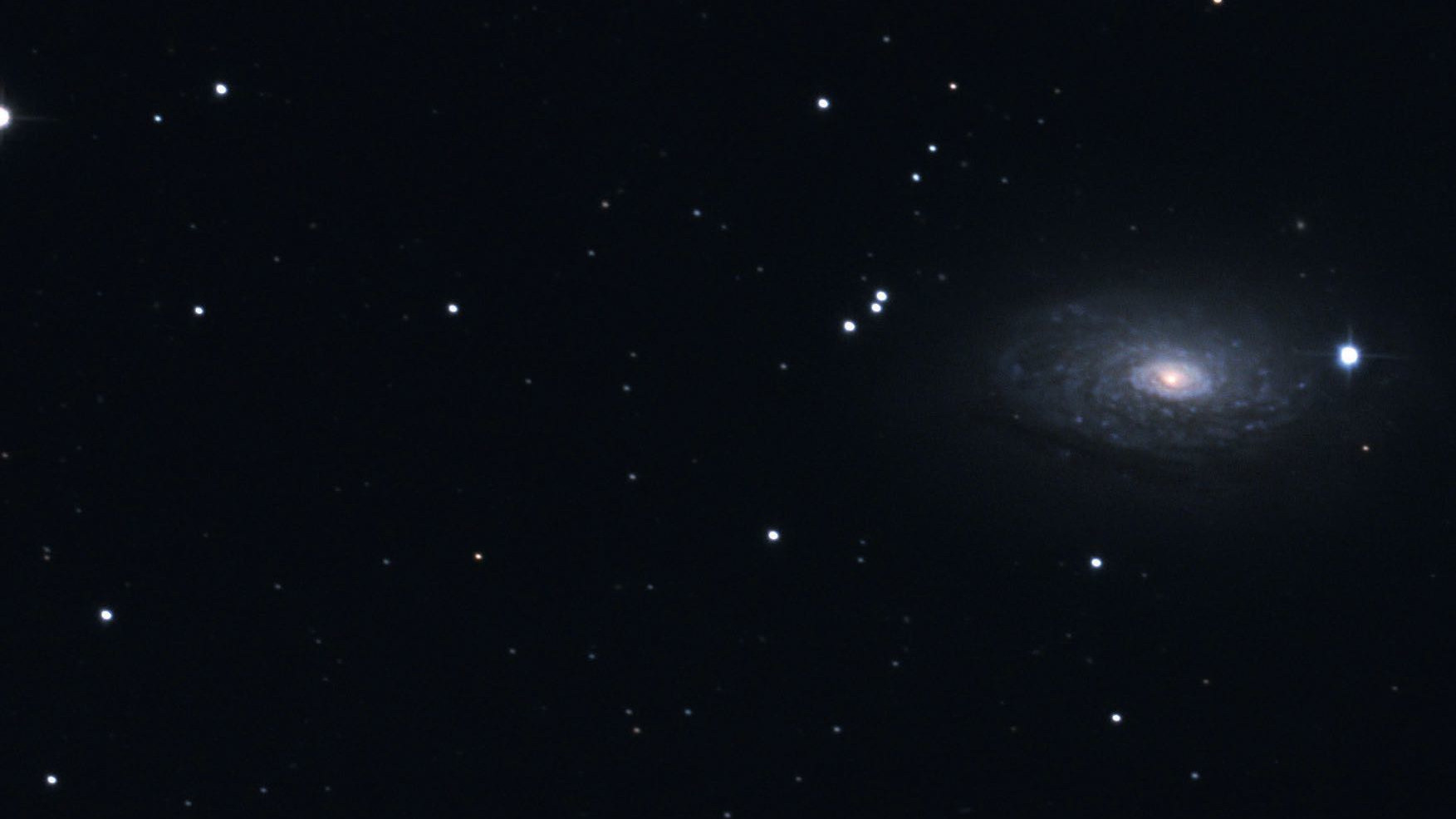On the hunt for galaxies in Canes Venatici
Searching for galaxies with binoculars requires dark skies. Then M94 and M 3 are worth a try!
 Almost a binary star though binoculars:
photographs show that M63 is definitely a galaxy.
Marcus Degenkolbe
Almost a binary star though binoculars:
photographs show that M63 is definitely a galaxy.
Marcus DegenkolbeSince the spring constellations are far away from the Milky Way, we can look deep into the universe from Earth. Unfortunately, most galaxies are so faint that they can only be seen through larger telescopes, relatively few are accessible with binoculars. And even for these, dark skies are needed - well away from disturbing light pollution.
From α to β
Canes Venatici is not especially striking in the night sky, only the line joining the two brightest stars Cor Caroli (α CVn) and Chara (β CVn) can be made out for orientation. Together with these two stars, galaxy M94 forms a flat, equilateral triangle, with the galaxy to the north. In good conditions, it can be seen through 8×30 binoculars; through 10×50 binoculars it appears bright and compact, but not point-shaped.
The open cluster Upgren 1 would lead a shadowy existence in other regions of the sky, but far away from the Milky Way it counts as a curiosity: it forms an almost equilateral triangle with Cor Caroli and Chara, in this case it is located south of the two stars. Through smaller binoculars it appears almost nebulous, with 10×50 binoculars it is possible to count five or six stars.
 Location map of the objects. Canes Venatici contains few stars, so finding the galaxies can be a challenge. J. Scholten
Location map of the objects. Canes Venatici contains few stars, so finding the galaxies can be a challenge. J. Scholten
Deep in space
The other Messier galaxy on our tour is more difficult to find because there are no bright stars for orientation. If you go around 4° slightly northeast of Cor Caroli, you will find a figure of 4 stars, which look like the Greek capital letter Γ. Around 1° north of this is an apparent binary star: however, the eastern partner is not a star, but an entire galaxy, namely M63. If you are using 10×50 binoculars you will be able to see it clearly and easily, with anything smaller it will be difficult to find.
Further challenges
In very good conditions, experienced observers should also try galaxy NGC 4490, which is just 40' west of Chara. With 10×50 binoculars, a small nebula should be visible with indirect viewing. Galaxy NGC 4449 is a little easier to observe, but more difficult to find. This is located exactly 2.5° north of NGC 4490; a magnitude 7 star around 0.6° north could be helpful in the search.
Author: Kay Hempel / Licence: Oculum-Verlag GmbH
